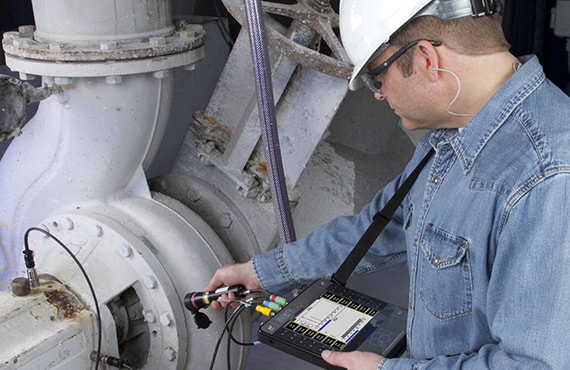BS 6920 – Suitability of Non-metallic Materials for Drinking Water Test
The British Standard (BS) 6920 is a crucial document that specifies tests to assess the suitability of non-metallic materials for use in drinking water systems. This standard ensures that materials used do not adversely affect the quality, safety, or taste of the drinking water.
Non-metallic materials are widely used in the oil and gas sector due to their corrosion resistance and ability to withstand harsh environmental conditions. However, when these materials come into contact with drinking water, they must meet stringent criteria to avoid contamination or leaching of harmful substances. The BS 6920 test ensures that such materials are safe for use in potable water systems.
The testing process involves several stages, including the preparation of specimens and their exposure to simulated conditions that mimic real-world drinking water environments. Specimens undergo immersion tests, where they are submerged in a solution designed to simulate the composition of drinking water. The test duration varies depending on the material type but typically ranges from 24 hours for quick turnaround options up to 96 hours or more for comprehensive evaluations.
Once exposed, the specimens are inspected for changes in appearance, texture, and any signs of leaching or deterioration. Specimens that pass these initial visual checks proceed through further analyses aimed at detecting potential risks such as chemical migration into the water supply. These tests often include pH measurement, heavy metal analysis, and microbial growth assessments.
The results from BS 6920 testing are critical for ensuring compliance with international standards like ISO and EN specifications related to drinking water systems. Compliance is essential in sectors where public health and safety are paramount. For instance, oil refineries, petrochemical plants, and other industrial facilities must adhere to stringent regulations regarding potable water quality.
By adhering to BS 6920 standards during the design phase or material selection process, companies can mitigate risks associated with non-compliance penalties and potential litigation. Additionally, successful completion of these tests enhances a company's reputation among clients who prioritize safety and sustainability in their operations.
The implications of failing such tests are significant; not only do they pose health risks but also carry substantial financial costs due to product recalls, replacements, and reputational damage. Therefore, investing time and resources into thorough testing early in the development cycle is prudent for maintaining both regulatory adherence and stakeholder trust.
Why Choose This Test
Selecting BS 6920 for assessing non-metallic materials ensures robust validation of their suitability for drinking water applications. This choice offers several advantages:
- Regulatory Compliance: Adheres to international standards, ensuring that your products meet legal requirements.
- Confidence Building: Provides reassurance to consumers and stakeholders about the quality of materials used in drinking water systems.
- Risk Mitigation: Identifies potential issues early in the design process before they become costly problems later on.
- Sustainability: Promotes environmentally friendly practices by selecting safe alternatives for non-metallic components.
In today’s competitive market, demonstrating commitment to safety and environmental responsibility can be a significant differentiator. By choosing BS 6920 testing, you not only comply with regulations but also contribute positively towards public health and ecological balance.
Quality and Reliability Assurance
The reliability of the test results obtained via BS 6920 is paramount for maintaining trust within the industry. Our laboratory employs state-of-the-art facilities equipped with precision instruments capable of detecting even trace amounts of contaminants. Each step of the testing procedure adheres meticulously to ISO guidelines, ensuring accuracy and consistency.
We employ experienced technicians who possess detailed knowledge about various materials and their interactions with water. Their expertise allows us to identify potential issues early in the process, thereby saving time and money for our clients. Furthermore, regular calibration of equipment guarantees that all measurements are precise and repeatable.
Our commitment extends beyond just conducting tests; it includes providing comprehensive reports detailing every aspect of the evaluation, including raw data and interpretations. These detailed documents serve as valuable resources not only during regulatory submissions but also in internal quality control processes.
In addition to technical excellence, our team prides itself on delivering exceptional customer service. From initial consultations right through to final report delivery, we strive to make every interaction efficient yet personalized. We understand the importance of timely feedback and aim to provide actionable insights that help guide future product development efforts.
Customer Impact and Satisfaction
The impact of BS 6920 testing goes far beyond mere compliance; it directly influences customer satisfaction by addressing key concerns related to safety, performance, and reliability. Here’s how:
- Health Protection: Ensures that the materials used do not introduce harmful substances into drinking water.
- Performance Optimization: Identifies optimal material choices based on their behavior under specific conditions.
- Risk Reduction: Minimizes risks associated with substandard products entering the market.
- Environmental Stewardship: Encourages environmentally friendly practices through rigorous testing protocols.
Our customers benefit from this service by gaining access to cutting-edge technology and expert advice. They can leverage these insights to enhance their own product offerings, thereby differentiating themselves in the marketplace. Moreover, successful completion of BS 6920 tests lends credibility to brands, fostering long-term relationships built on mutual trust.





